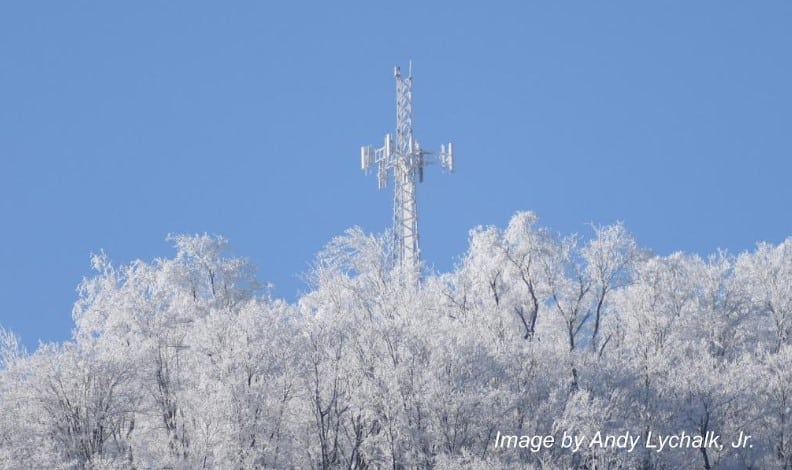Increased Well Setbacks Would Shut Down PA Energy Supply, Causer Says
HARRISBURG – Following a public hearing Monday on legislation that would drastically increase setback requirements for drilling natural gas wells, Rep. Martin Causer (R-Cameron/McKean/Potter), Republican chairman of the House Environmental Resources and Energy Committee, called the bill a threat to the state’s energy production, jobs and consumers.
“Every single day, we all rely on various sources of energy produced right here in the Commonwealth, including abundant amounts of natural gas,” Causer said. “It is disturbing that some legislators would even propose a bill that would effectively place a moratorium on one of our largest sources of energy and a major economic engine in the Commonwealth.
“When you look at the cause of inflation, rising energy costs are at the top of the list. This bill would effectively shut down our energy production, causing great harm to workers and their families, as well as all of us who pay the bills to light and heat our homes, power our vehicles and more,” he added.
House Bill 170 proposes to drastically increase setback requirements for unconventional wells and related infrastructure to such an extent that as much as 99% of the land in the state’s top natural gas producing counties would be ineligible for well development, according to an assessment conducted by the Marcellus Shale Coalition.
As noted in the co-sponsorship memo circulated by the bill’s author, the proposal is based on a 2020 grand jury report that was thoroughly debunked by the Department of Environmental Protection operating under Democrat Gov. Tom Wolf’s administration.
“In many aspects the grand jury report is both factually and legally inaccurate,” the DEP wrote in its response to the report. “If the grand jury had been presented with complete and credible evidence, as well as the applicable law, it likely would have never written the report in its current form. The citizens of Pennsylvania need to know the report is unreliable and does not support the grand jury’s recommendations.
Regarding the setback recommendations in the report, DEP goes on to say, “The proposed setbacks are not supported with any information that establishes that these particular distances afford an appropriate level of protection and appear to have been chosen randomly.”
“When even the state agency charged with protecting the Commonwealth’s environment so soundly criticized the recommendations in this report, why on earth would we vote to essentially shut down an industry that supports hundreds of thousands of jobs and meets a basic necessity for our citizens?” Causer asked.
Among those testifying against the bill was Robert Bair, president of the Pennsylvania Building and Construction Trades Council, who had strong words for those who might fail to understand the implications of the bill.
“Let us be clear. When you ban new development, you ban jobs for my members. If there are no new gas wells being drilled, there is no new infrastructure that is needed. Pipelines, processing facilities, new manufacturing plants, power plants needed to stabilize our electric grid – none of these would be built,” Bair told the committee. “To some who enjoy the benefits of our work without acknowledging their own dependence upon it, this may seem like good news. Such a view is detached from reality and particularly insulting to my members when it is made by individuals who never have to worry about whether their next paycheck will arrive.”
David Callahan, president of the Marcellus Shale Coalition, testified the current setbacks are sufficient when combined with other stringent regulations in the Commonwealth, including permitting for things like erosion and sediment control, well drilling, air quality, waste and more.
“The setback distances complement the significant well site and well bore construction standards in place to protect the environment and public health,” Callahan said. “The host of legislative and regulatory requirements that govern every step of the unconventional well development process are among the most stringent in the nation, including the requirement for multiple layers of steel casing and cementing to protect the aquifer and drinking water supplies.”
In addition to the economic implications, the proposed setbacks and language prohibiting waivers of such setbacks infringe on individuals’ rights to exercise their mineral rights. Shutting down Pennsylvania’s energy industry would also make the Commonwealth and the country more dependent once again on outside sources of energy, including unstable countries in the Middle East.
“It is important to remember the men and women who work in the oil and gas industry reside in the communities in which they work. They have a vested interest in ensuring public health and safety for themselves, their families and their neighbors,” Causer said. “We have abundant natural resources, a superior workforce and enhanced technology to continue growing our energy industry. We absolutely must reject destructive and burdensome regulations that would irresponsibly and unnecessarily halt future growth and opportunity.





